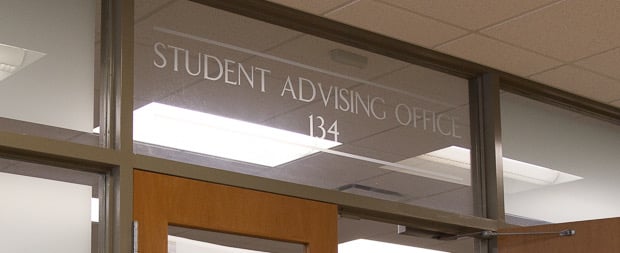
Support for Students with Dyslexia Crosses the Legislative Finish Line
For years, the debate around how to support struggling readers and students with dyslexia has lingered around the Michigan Capitol, with lawmakers advancing responsive legislation only to put it on ice at the last minute (Chalkbeat Detroit). For example, back in October 2020, “a bipartisan group of lawmakers” introduced a collection of bills (SB 1172, SB 1173, SB 1174, and SB 1175) “to help students with dyslexia” by mandating that schools “screen all students in kindergarten through third grades for signs of dyslexia,” ensuring that “teacher preparation programs…offer instruction on dyslexia,” “requiring teachers to have a minimum level of training about dyslexia to be certified,” and having “the Michigan Department of Education…provide schools with ‘instructional methods and curriculum resources’ that work for students with dyslexia” (Chalkbeat Detroit; The Detroit News). That said, despite some initial interest around this package, it ultimately “didn’t go to a vote” in either the Michigan House or Senate and fizzled out (Chalkbeat Detroit). Analogously, in April 2021, legislators introduced a new package of bills (SB 380, SB 381, SB 382, and SB 383) “to help struggling young readers” via previously proposed strategies and a prohibition of “instructional methods and curriculum resources that [include] instructional methods that [minimize] the importance of primarily using letter sound information to decode or recognize unknown words, among other methods” (Chalkbeat Detroit; MASA 11/12/21 Legislative Update; November 2021 Capitol Perspectives). Again, while these bills lingered around the Michigan Capitol, even earning the Michigan Senate’s approval in May 2022, state leaders ultimately “adjourned the 2021-22 legislative session” without action on these bills in the Michigan House, sending everything “back to square one” (Chalkbeat Detroit; July 2022 Capitol Perspectives; November 2022 Capitol Perspectives; Chalkbeat Detroit; December 2022 Capitol Perspectives).
In 2024, related efforts have consistently been in the news. First, at the end of February, the Senate Education Committee took up two proposed pieces of legislation (SB 567 and SB 568) that would “create a framework and assessment system to identify characteristics of dyslexia in students,” “mandate [that] school districts and colleges use practices from the science of reading,” and “set standards for teacher preparation programs to train future educators on methods based on the science of reading as well as best practices to identify and support children struggling to read and students with dyslexia” (MASA 2/23/24 Legislative Update; Chalkbeat Detroit; Michigan Public Radio; February 2024 Capitol Perspectives). From there, in March, the Michigan Senate “overwhelmingly voted in favor of” SB 567 and SB 568 (37-1 and 38-0, respectively) (MASA 3/15/24 Legislative Update; MASA 3/8/24 Legislative Update; March 2024 Capitol Perspectives). After that, in June, the House Education Committee heard testimony on the bills (June 2024 Capitol Perspectives; MASA 6/14/24 Legislative Update). However, the discussion did not trigger any immediate actions by lawmakers, and the reforms seemed stalled again for a while.
In September, after a quiet few weeks, broadly speaking, for the Michigan Legislature, with “members…in their districts campaigning for the November election,” state officials sprang to life around these efforts to help struggling readers (MASA 9/13/24 Legislative Update). Ultimately, by the month’s end, the Michigan House and Senate approved SB 567 and SB 568 “overwhelmingly in a rare show of bipartisan consensus” (Michigan Public Radio). On the former bill, the Michigan House voted 100-8 (with two representatives not voting), and the Michigan Senate almost unanimously approved the measure by a margin of 37-0 (with one state senator excused) (Michigan Legislature). Regarding the latter bill, the Michigan House’s vote count was 99-10 (with one member not voting), and the Michigan Senate’s tally was again nearly unanimous with just one excused voter (Michigan Legislature). As a result of the votes, “new and existing teachers” will receive added literacy-oriented instruction, “the benchmark assessments that elementary students already take three times a year” will be aligned “with science of reading-based test content,” and “children who show signs of…dyslexia” will be “provided with…support” (Michigan Public Radio). Compared to earlier versions of the legislation, these bills also include language that “requires [the] MDE to notify parents if their child does not score proficiently on literacy and language arts tests, prevents MDE from sharing students’ IREPs with vendors, aligns language with federal law, and updates the tiered support system to the Multi-Tiered System of Supports (MTSS)” (MASA 9/27/24 Legislative Update). Importantly, unlike some recent education measures, the bills were granted immediate effect (SB 567 and SB 568). Though, they were written to not be implemented until “the start of the 2027-2028 school year” to appease various associations worried that the reform “would put additional burdens and new, more restrictive demands on teachers and school districts” at a time of statewide staffing shortages (Michigan Public Radio; MASA 9/27/24 Legislative Update).
Once these votes were finalized, the conclusion to this saga was marked with celebration by bill sponsors who explained that their passage “represents a ‘moment of hope’” (Chalkbeat Detroit). Thematically similar, Governor Whitmer added, via a press release, that this package “will help even more students read at higher levels and move our state forward.” Additionally, backers of the reforms expressed hopes that the measures will go beyond supporting students with disabilities to “help all students learn to read using research-backed methods,” especially given 2024 M-STEP results that “showed 60% of third graders fail[ing] the state reading test” (The Detroit Free Press). Going forward, one impactful question will involve the implementation of these bills. Previously, some “local district superintendents and administrators” worried that “school systems won’t receive the funding necessary to meet the new standards in the legislation” and that “the ongoing teacher shortage will make filling needed positions, such as literacy coaches, unfeasible” (Chalkbeat Detroit). As such, invested readers will have to keep an eye on how these dynamics play out and what effect these bills have on literacy in Michigan.
Revisiting 31aa School Safety and Mental Health Resources
This summer, the Michigan Legislature passed and Governor Whitmer signed HB 5507, putting a bow on the state’s formal 2025 budget process (July 2024 Capitol Perspectives; June 2024 Capitol Perspectives; House Fiscal Agency). Having said that, the content included in and excluded from this year’s School Aid Fund sparked a reaction that almost immediately reopened discussions of school funding as educators, district leaders, and school advocates expressed significant “concern” that the agreed upon budget “could mean layoffs all over the state” and “be devastating in a lot of ways” (Chalkbeat Detroit). Specifically, these individuals shared apprehensions over the Michigan Legislature’s decision not to increase minimum per-pupil funding for traditional public schools for “the first time in over a decade” and agreement to “decrease…dedicated funding for school safety and mental health supports, from $328 million in the current fiscal year to $26.5 million” (Chalkbeat Detroit; AP; The Detroit Free Press; Bridge). Hoping to change state leaders’ minds about these grants, these voices called for supplemental school funding to ensure that they would not need to “make cuts” to staff or “put a pause on expanding staff mental health and safety training” (Chalkbeat Detroit).
In the legislative rush at the end of September, lawmakers approved “a supplemental state school budget” via HB 5503 to “restore about half of the money [about $125 million] that was previously cut from grants for student mental health and school safety” (Chalkbeat Detroit; MASA 9/27/24 Legislative Update). With these added resources, districts can pay for “a variety of services and programs, including: hiring or contracting school psychologists, social workers, counselors, or school nurses; accessing or hiring behavior health clinicians or coordinators; collaborative costs between schools and community partners for data collection; costs associated with school mental health needs assessments; safety and emergency infrastructure and technology; and training on threat assessments and response and crisis communication for school staff and on responsible firearm ownership for families” (MLive). Perhaps anticipating future debates around these resources down the road, the legislation included “language saying that if a local school system uses the money to hire staff, the district would need to pay for the staff’s salaries with other district funding next year” (Chalkbeat Detroit). Also of note, the measure included an allocation of $1 million “for an anonymous tip line to report incidents of firearms that are not properly secured and accessible to minors” (The Detroit Free Press).
While school districts are sure to appreciate the added funds and the Michigan Education Association “praised state lawmakers” for the move alongside the “Michigan Alliance for Student Opportunity, school boards and statewide associations for school administrators,” support for the supplemental budget was not universal (MLive). Representatively, some folks suggested that the funding did not go far enough, saying this level “was a ‘half measure’” and “introduc[ing] an amendment…that would have increased the funding by $300 million” (Chalkbeat Detroit). Similarly, Senate Republican Leader Aric Nesbitt argued that the partial funding means that “half of the door locks that should be installed in classrooms won’t be, half of the security cameras that should be installed to detect intruders won’t be, and half of the students facing a mental health crisis won’t receive the support they need” (Michigan Senate Republicans). Separately but also in the direction of criticism for the supplemental spending bill, some GOP senators critiqued the move to fund “an anonymous [firearms] tip line” (The Detroit Free Press). Whether due to the bill’s level of support or specific content, “House Republicans denied immediate effect [for the legislation], meaning the funds will be disbursed in April” (MASA 9/27/24 Legislative Update). Regardless, September saw this allocation work its way through the Michigan Legislature, and Governor Whitmer is expected to sign it into law soon (MASA 9/27/24 Legislative Update).
Entrenching Changes to MPSERS Funding
The other central controversy around the budget process this summer was connected to how much districts must contribute to their employees’ retirements. Concurrently with state lawmakers’ decision not to increase per-pupil funding in the FY 2025 School Aid Fund, Michigan Democrats who helped design the budget framework explained that the move was justified because they included “$589 million to offset districts’ payments into the Michigan Public School Employees’ Retirement system [MPSERS],” which would “[save] districts an amount roughly the equivalent [of providing schools] $400 per student” and actually bolster “the discretionary funds available above what was in the executive recommendation for the per-pupil increase” (Chalkbeat Detroit). In response to this defense, many still-frustrated education stakeholders argued this one-time change to state retirement funding could not be treated “the same as an increase to per-pupil funding” because of lacking certainty that it would continue in future budgets (Chalkbeat Detroit). Possibly preempting these concerns, lawmakers had previously introduced and began considering HB 5803 alongside the budget to “make the…MPSERS rate reduction [included in the FY 2025 budget as a one-year change in lieu of a per-pupil funding increase] permanent” through 2030 (MASA 7/26/24 Legislative Update; Chalkbeat Detroit). That said, while the Michigan House passed this bill before the budget was approved, it did not make it to the “Senate before the upper chamber adjourned” after passing the budget in a decision that “rankled some House Democrats” (The Detroit News).
Revisiting this topic, at the end of September, state legislators approved HB 5803, “permanently reducing school districts’ MPSERS contributions by 5.75% and eliminating the 3% healthcare contribution for employees,” effective on October 1, 2025 (MASA 9/27/24 Legislative Update). In reviewing the move, the Michigan Association of Superintendents & Administrators (MASA) said that the MPSERS change “provides significant, ongoing, and predictable financial relief, enabling districts to allocate more resources directly into classrooms – benefiting students, teachers, and school communities” and that “eliminating employee contributions will reduce the financial burden on school staff.” Positioned differently, “Republicans mostly opposed the change, arguing the Legislature should continue to increase funding to the school employees’ pension system until the entire system is fully funded, not just retiree health care” (The Detroit Free Press).
As with the other measures in this month’s edition of Capitol Perspectives, Governor Whitmer is expected to approve this passed reform, given her statement that it helps ensure that “educators [can] pay the bills, put food on the table, and live better lives right here in Michigan” and that “schools have the funding they need to invest in classrooms, computer labs, and libraries, expand on-campus mental health options, or shore up campus safety” (MLive). Looking beyond these issues and considering what might come next, September included the “final day of voting” for the Michigan House “before the Nov. 5 election that will decide whether Democrats keep their governing trifecta with Gov. Gretchen Whitmer’s party enjoying full legislative control” (The Detroit Free Press). Nonetheless, further into the future, some Capitol-watchers have noted that they anticipate “a potentially busy lame duck session” depending on the result of elections previously covered in the July 2024 Capitol Perspectives (MASA 9/13/24 Legislative Update). As always, whatever develops, future editions of Capitol Perspectives will feature it.
For questions or more information, please contact Tyler Thur in the Office of K-12 Outreach at thurtyle@msu.edu.




